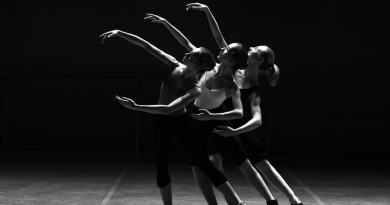How Does Theatre Impact Student Learning?
The theatrical art form has endured for centuries and has been utilized in education to facilitate diverse learning methods. With its potential to probe various concepts and notions, theater can be a potent instrument for developing critical thinking, creativity, and student collaboration. This article delves into the impact of theater on student learning and how it can enrich the educational experience.
The Benefits of Theatre in Education
Theatrical performance has been a longstanding tool for instructing and honing a wide array of skills among students. The application of dramatic arts in pedagogy has demonstrated notable efficacy in advancing students’ analytical reasoning, social competence, and cooperative proficiencies. Theatre also serves as an instrument for educating pupils on historical events, cultural values, and societal dilemmas, fostering compassionate and considerate outlooks. Employing theater in educational settings proffers manifold benefits, such as:
- Developing Critical Thinking Skills
Theater can help students think critically about different ideas and concepts. Students can develop analytical and critical thinking skills by exploring other characters and situations. They can also learn to think creatively and to consider different perspectives and viewpoints.
- Improving Communication and Collaboration Skills
Theatre requires students to work together and communicate effectively. Students can develop teamwork and communication skills by working collaboratively on a performance. They can also learn to give and receive feedback and to work together to create a cohesive and compelling performance.
- Encouraging Creativity
The realm of theater can allow students to unleash their innovative and creative capabilities. As they explore distinct characters, stories, and circumstances, students can broaden their horizons by thinking innovatively and expressing themselves in novel and thrilling ways.
- Teaching History, Culture, and Social Issues
Theatrical performances offer an opportunity to educate pupils about the intricacies of history, culture, and social concerns. Learners can cultivate a nuanced comprehension of the world around them by exploring various eras in history, cultural practices and beliefs, and social difficulties. This approach also instills in them an appreciation and reverence for diverse cultures and perspectives.
- Encouraging Empathy and Understanding
Theatrical productions possess a remarkable capability to inspire compassion and enhance comprehension. By scrutinizing diverse personages and circumstances, pupils may acquire knowledge of different standpoints. Furthermore, they may cultivate a profound understanding and admiration for the ordeals and complexities experienced by others. Relying solely on one facet of empathy may not suffice for students to thrive and excel in all their undertakings. In such circumstances, it would be wise to avail of written assistance to facilitate the completion of their tasks. To ascertain the reliability and usefulness of such services, one should pursue nursingpaper.com reviews. Before utilizing any resources, it is crucial to remember that ensuring the legality and safety of the website is paramount.
The Impact of Theatre on Student Learning
The impact of theater on student learning has been the subject of numerous studies. These investigations have revealed that theater can have a substantial affirmative influence on student learning, particularly in the areas of critical thinking, communication, and collaboration.
A study found that students who participated in theater programs exhibited higher scores on standardized critical thinking tests than those who did not. Another study revealed that students participating in theater programs were more likely to graduate from high school and attend college than their peers who did not participate.
Moreover, the theater has been demonstrated to be exceptionally effective in aiding students with learning disabilities. A study discovered that students with learning disabilities who were involved in theater programs exhibited higher levels of self-esteem, superior social skills, and improved academic performance.
How Theatre Can Be Used in Education
There are many ways that theater can be used in education, including:
- Drama Classes
Dramatic arts curricula may serve as a vehicle for educating individuals on the art of the stage and further honing their theatrical skills. Additionally, curricula may be employed to instruct pupils on historical events, customs, and societal difficulties, all while nurturing compassion and comprehension.
- Theatre Productions
Theatrical exhibitions hosted by educational institutions allow students to demonstrate their abilities before a live audience. Additionally, such presentations can educate learners about a wide range of historical eras, cultural nuances, and societal concerns.
- Theater-Based Workshops
The pedagogical employment of theater-based workshops offers a potential means of imparting a comprehensive understanding of a diverse range of theatrical concepts, including but not limited to playwriting, stagecraft, and directing. Moreover, said workshops possess the potential to act as a vehicle for exploring a plethora of socially relevant themes while simultaneously instilling within students the ability to engage in cognitive processes associated with creativity and critical thinking.
- Theater for Social Change
The theatrical arts may serve as a tool to advance societal progress. Students, for instance, can conceive dramatic presentations that spotlight social quandaries and galvanize their audiences to take remedial action. This method can be a practical approach for pupils to exercise their ingenuity and analytical faculties to effectuate change within their societies.
- Theater-Based Learning Activities
Dramatic art education can serve as a valuable method of instructing various subjects such as literature, science, and history. This approach provides a novel and exhilarating technique for students to interact with the course material, ultimately reinforcing essential concepts and ideas.
Conclusion
The theatrical performance is a potent instrument to elevate and augment students’ knowledge. Through involvement with theatre, students can hone their faculties of critical analysis, effective communication, teamwork, and nurturing their flair for originality and sensitivity to others. By assimilating the theatrical arts into the academic experience, we can assist pupils in cultivating their potential as more attentive, imaginative, and informed scholars.



